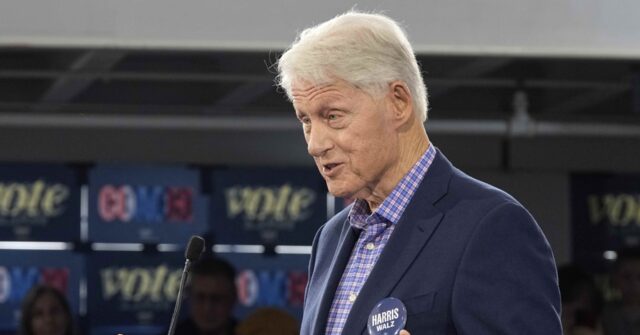The recent discussions surrounding the Israeli-Palestinian conflict have surfaced during the final week of the 2024 election season, facilitating a relatively candid dialogue within left-leaning circles about accountability for the ongoing strife. Van Jones, a prominent figure in progressive circles and a respected community organizer, recently addressed the complexities surrounding the pro-Palestinian movement during an appearance on Jonah Platt’s podcast, “Being Jewish.” He emphasized that while the plight of the Palestinians is just and deserving of support, the movement’s message has been co-opted by Hamas, which he unequivocally denounces as a “Nazi organization.” According to Jones, Hamas is not a champion for human rights or democracy but, instead, undermines the very essence of the Palestinian cause by prioritizing its destructive agenda over the actual welfare of Palestinians. He noted the glaring contradiction in some narratives that criminalize opposing viewpoints while minimizing the horrors inflicted by extremist factions like Hamas, which, in his view, poses a direct threat to the lives of innocent people, particularly Israel’s more liberal and peace-oriented population.
Former President Bill Clinton contributed to this dialogue by acknowledging the deeply complex issues surrounding the Middle East while addressing Democrats in Michigan and encouraging a reevaluation of the peace process. Clinton expressed understanding for sentiments among young Palestinian and Arab Americans who fear for their families amid escalating violence. However, he also urged a nuanced perspective by pointing out that many Israeli communities, notably those close to Gaza, have historically advocated for dialogue with Palestinians. Following the recent attacks by Hamas, he questioned the morality of judging Israel’s retaliation solely by casualty counts. Clinton emphasized that the true challenge lies in distinguishing between the actions of Hamas, which he believes does not genuinely seek peace or statehood, and those Israelis who openly support a two-state solution. His reflection highlights the historical roots of tension and the complex interplays of power and heritage that shape the current conflict.
Clinton’s critiques do not shy away from contentious territory, as he recounted how key offers for Palestinian statehood were historically rejected. He shared insights from the peace process under his administration, wherein substantial concessions were offered to the Palestinians, including a significant portion of land and access to East Jerusalem. He lamented that the refusal to accept these proposals speaks to a larger issue: that Hamas’s primary objective is the elimination of Israel rather than the establishment of a sustainable and peaceful homeland for Palestinians. By detailing the mythology behind territorial claims from both sides since the time of King David, Clinton provides a historical context that complicates the narrative of victimhood on both sides of the equation.
The core of Clinton’s message suggests that any dialogue aimed at resolution must acknowledge the underlying causes of violence, rather than perpetually assigning blame to one party. He cautioned against the belief that endorsing a more radical anti-Israeli agenda, which might emerge from an unfavorable political climate, would somehow ameliorate the conditions for Palestinians. Using the current political landscape, he warned those considering disengagement from the electoral process as a means of expressing dissent that such actions could inadvertently bolster right-wing establishments less sympathetic to Palestinian concerns. By arguing that punishing the Biden administration for standing by Israel could inadvertently prolong the ongoing conflict, Clinton sought to highlight the implications of political decisions on reconciliation efforts.
Despite the shifting attitudes among some Arab and Muslim voters, Clinton maintains that aligning politically with a pro-Israel stance provides a more constructive path forward. He further elucidated that the notion of terminating violence from either side would not simply solve the issues at hand; rather, it necessitates establishing dialogues aimed at mutual understanding and respect. This perspective reveals the complex balancing act that both the Israeli and Palestinian populations must undertake to create a more fruitful discourse that can lead to genuine peace instead of continued bloodshed.
In conclusion, the intersections of ideology, historical narrative, and lived experiences presented by both Van Jones and Bill Clinton underscore an evolving dialogue on the Israeli-Palestinian conflict. By challenging their respective audiences to rethink entrenched narratives and recognize the nuances of the situation, they contribute to a broader conversation that could help bridge ideological divides. Ultimately, addressing the challenges ahead requires honest and open discussions that confront uncomfortable truths, emphasizing the essential role of acknowledgment, compromise, and understanding in the pursuit of lasting solutions. As the upcoming election approaches, the acknowledgment of these complexities may offer a pathway toward a more informed and nuanced public discourse on an enduring international conflict, possibly fostering a long-overdue reassessment of alliances and strategies moving forward.

